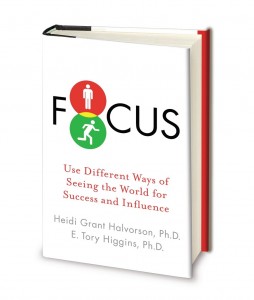Do opposites attract, as Paula Abdul once assured us in a pop song, or do you need to be similar on twenty-nine dimensions of personality – as E-harmony suggests – to find the perfect match?
Throughout the history of our young science, psychologists have gotten caught up in heated debates over questions like this one. Is intelligence a product of nature, or nurture? Is our personality stable, or does it change? Are our cognitive processes – like making decisions or forming impressions – rational, or biased? The answer, of course, always ends up being some version of “It’s both.”
Intelligence is clearly influenced by both the genes our parents bequeath to us, and the environment in which those genes express themselves. Personality is somewhat stable – most of us can see aspects of who we are now in the children we once were – but people can and do change with experience. And our decisions can be fairly rational, or remarkably biased, depending in part on how much effort and attention we pay to the problem at hand.
So it shouldn’t surprise you that the answer to the question “Should I choose a partner that is similar to me, or different?” is… choose someone who is both. The trick is understanding where similarity matters, and what kinds of differences will benefit you most.
Let’s start with the differences – and here, it basically boils down to a particular kind of talent sharing. Research we have conducted with other members of Columbia’s Motivation Science Center, has shown that people tend to see their goals in one of two ways – ways that determine their relative strengths and weaknesses, as well as how they work best.
If you think about your goals in terms of the potential advancement, accomplishments and rewards they might bring – in terms of what you would gain if you are successful – you have what’s called a promotion focus. Consequently, your strengths (relative to those who aren’t as strongly promotion-focused) include creativity, openness, and the ability to identify and seize new opportunities.
If, instead, successfully reaching your goals is about staying safe and secure, and ensuring against any losses— you have a prevention focus. Prevention-focused people want fulfill their responsibilities, make no mistakes, and keep things running smoothly. Your strengths are careful planning, thoroughness, and solid, realistic reasoning.
Promotion-prevention pairings in relationships might, at first glance, seem like a disaster waiting to happen. He is willing to take a chance on something new, she wants to stick with what has worked before. He is an optimist, she is a skeptic. He is spontaneous, she lives by her daily planner. He speeds, she’s quick to put on the brakes to make sure they are heading in the right direction. The opportunities for conflict are endless.
But new research that will appear in the journal Social Cognition by MSC Fellow and University of Waterloo psychologist Vanessa Bohns and her colleagues suggests that the best relationships (and by “best,” I mean something like “most adaptive and mutually satisfying”) may in fact be these Odd Couples.
Bohns and colleagues studied both dating and married couples, and found those with mixed-motivations enjoyed greater relationship satisfaction than all-promotion or all-prevention pairings. They argued that this was because of the clear advantages of being able to “divide and conquer” your various activities. After all, couples usually have goals related to both advancement and security – they need to help each other in order to both reach their dreams and fulfill their responsibilities. So each person can take on the tasks that they are best suited for, knowing that their partner has got the rest covered. (He can come up with the plan for a great vacation, she can make sure they actually get there with passports and clean underwear.) With mixed-motivation couples, family life has the potential to be more balanced –children know how to be optimistic and realistic – because the partnership contains both the promotion and prevention points of view.
But there is one very important caveat, and this is where similarity becomes essential. The couple in question must have shared goals. They need to feel that they are on the same page in terms of what they want in life, and differ only in terms of their preferred ways of getting it.



 Here’s some good news: an incredible 90 percent of responders report pursuing at least some of their goals with Get Better mindsets. But here’s the Bad News: 80 percent of responders are also pursuing goals with Be Good mindsets. So there’s still way too much I-have-to-prove-myself thinking going on out there, and it’s sabotaging our success.
Here’s some good news: an incredible 90 percent of responders report pursuing at least some of their goals with Get Better mindsets. But here’s the Bad News: 80 percent of responders are also pursuing goals with Be Good mindsets. So there’s still way too much I-have-to-prove-myself thinking going on out there, and it’s sabotaging our success.